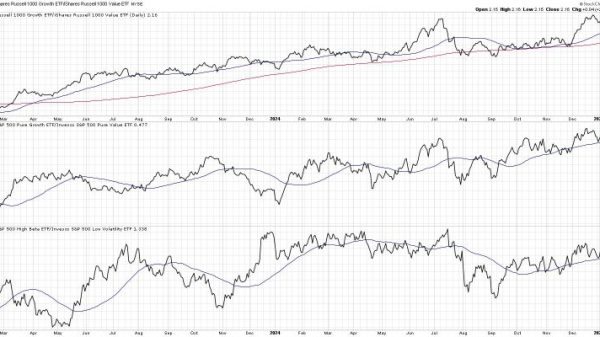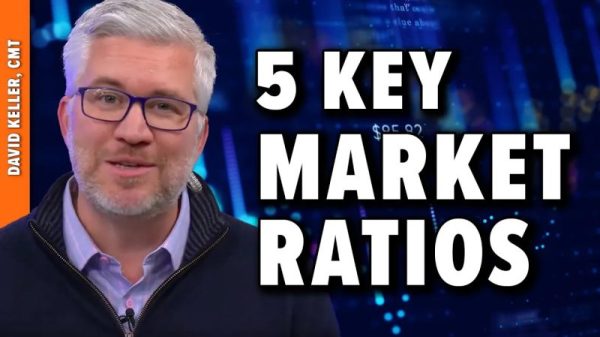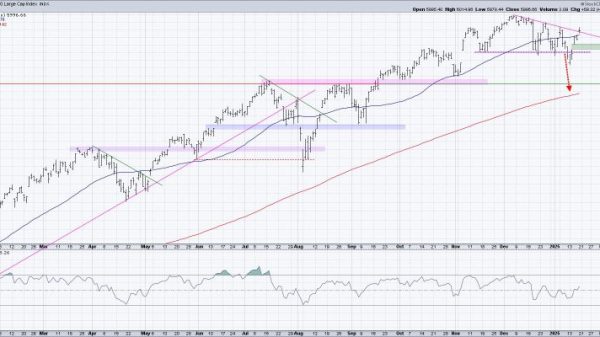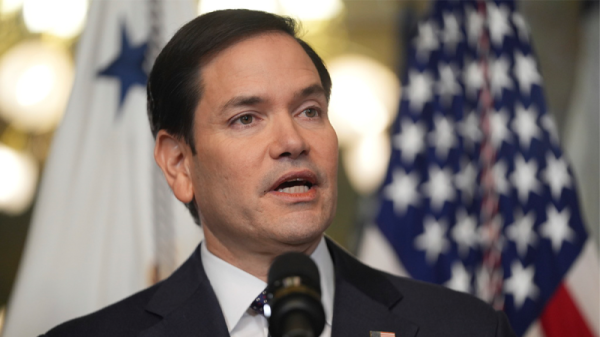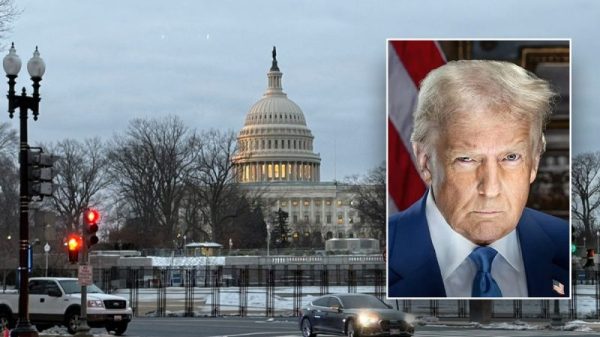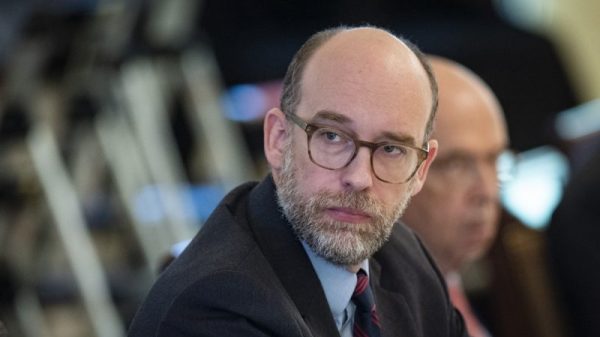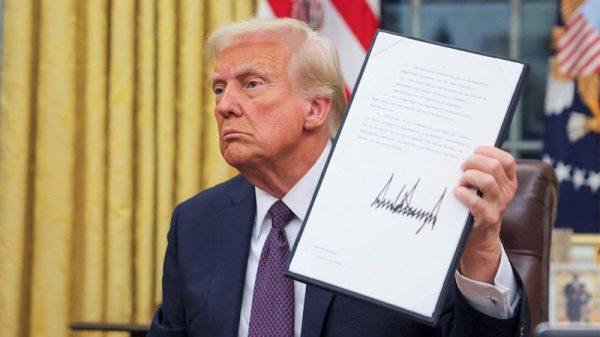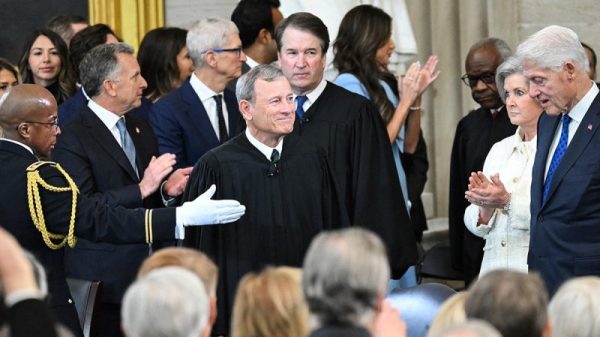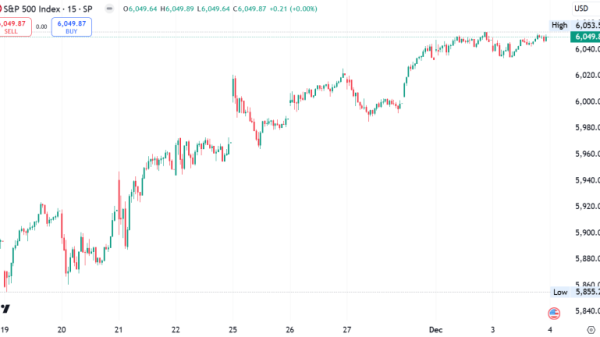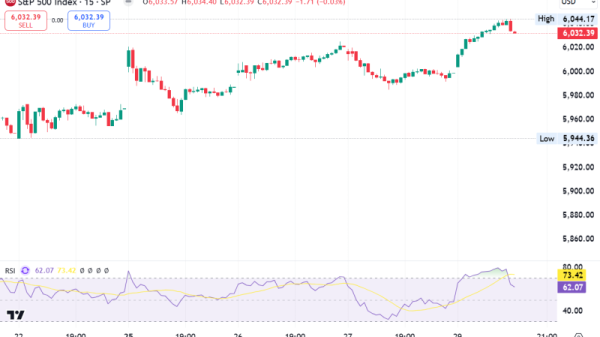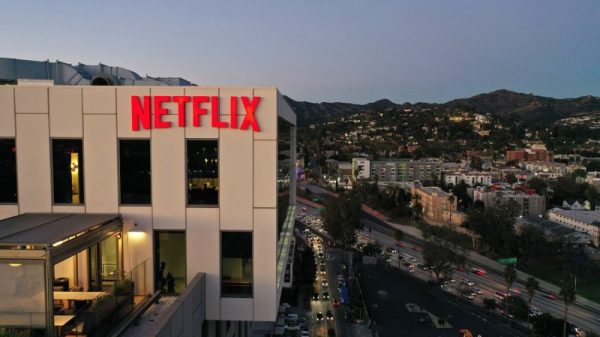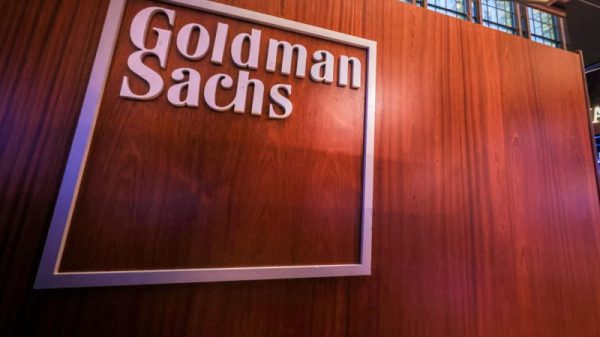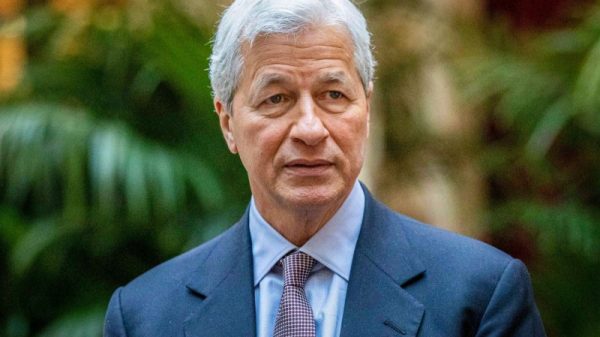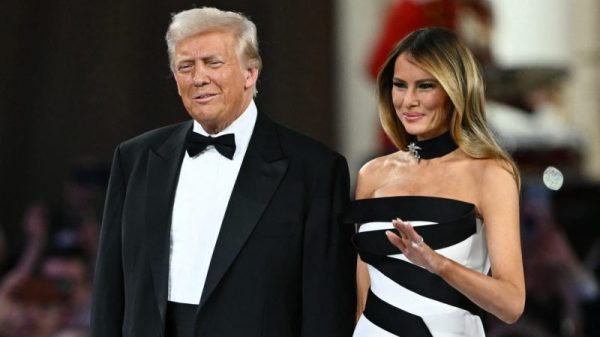OMAHA — Bored by politics until two months ago, Coral Meija said two things got her involved in this year’s election: Vice President Kamala Harris’s ascension to the top of the ticket and, more importantly, two abortion-related measures on Nebraska’s November ballot.
“That is definitely No. 1,” said Meija, 23, gesturing to reveal that she is seven months pregnant, as she sat last Friday in a Mexican restaurant on the outskirts of town at a packed event for the local Democrat running for the U.S. House.
Combine those two factors with Nebraska’s quirky law giving Democrats a chance to nab one potentially game-changing electoral vote for president, as well as a crucial House race, and Omaha has turned into one of the most unlikely but hottest battlegrounds on the political map.
Just twice since the law changed in 1992 has red Nebraska awarded one of its five electoral college votes to the Democratic presidential candidate, and both times it came from Nebraska’s 2nd Congressional District, which encompasses Omaha. Now, after Harris’s surge through the late summer, Democrats and Republicans alike see a chance for the Omaha area to vote for the Democratic candidate a third time — and maybe even swing the presidential election.
Under that not-completely-crazy possibility, Harris and former president Donald Trump could end up dividing up states so evenly that the electoral count could end up at 269 for Harris, 268 for Trump.
And then the final vote could be decided right here in Omaha.
“Well, we can be the tiebreaking vote for the presidency and people take it really seriously,” said state Sen. Tony Vargas (D), who is challenging the district’s four-term incumbent Rep. Don Bacon (R) in a race to help determine the House majority. “The energy is just incredible. And people take both these things very, very seriously, as a point of pride.”
Vargas was speaking Friday in his campaign headquarters, where he was mapping out ways in which his campaign and Harris’s Nebraska team can help each other. The congressional race has always been expected to play a pivotal role with the House, and now, with the possibility the 2nd district might hand Harris an electoral college vote, the Harris-Walz campaign is flooding the TV airwaves here.
Local Democrats have embraced “blue-dot energy,” planting simple white lawn signs with a blue circle to illustrate their liberal lean despite being surrounded by a deep-red, conservative area for hundreds of miles in any direction.
“We know that Harris has blocked $6 million on TV, and she’s spending it right now. We have zero on the other side. So what it does, it hurts our party in the Omaha area, up and down ballot,” Bacon said Saturday during a rally at a local police hall.
In fact, Bacon shortchanged the disparity. The Harris-Walz campaign is spending $6 million in ads in Omaha, according to AdImpact, an independent firm surveying political spending. But Biden had already spent about $4 million before he handed the reins to Harris, and liberal allies spent another $5 million.
All told, it’s about $15 million for the Democratic presidential ticket and less than $200,000 for the GOP nominee.
Trump’s campaign has simply surrendered this district, despite winning it in 2016 and losing to Biden here by just 6 percent in 2020. The state legislature even redrew it to be a little less favorable for Democrats.
Aside from a private fundraiser in late August attended by Sen. JD Vance (R-Ohio), Trump’s running mate, the campaign has little presence in Omaha. His allies launched a ham-handed attempt to strong-arm state legislators into changing the law so that Trump could claim all five of Nebraska’s electoral votes in the winner-take-all model used by 48 other states, but that failed. Under current law, the winner of the state’s popular vote gets two electoral college votes, and its three congressional districts gets one vote each.
With Harris going all in, Republicans fear that Bacon and other down-ballot Republicans could pay the price.
By late June, Republicans in Washington had felt confident about Bacon’s campaign, in part because Biden had sagged far enough that Trump had a pretty good chance at winning the district and its electoral vote.
Now, Republicans and Democrats alike view Harris as the heavy favorite to come close to or even exceed Biden’s margin of victory in the state’s 2nd Congressional District.
And that makes Bacon more endangered than he has ever been.
“I bet you it costs me 2 or 3 points every four years,” he said of the Democratic effort to win the lone electoral vote. “It surely skews the spending in our district, which I obviously don’t like. But if you’re a Democrat, you love it.”
A retired Air Force brigadier general, Bacon, 61, is running as a mainstream conservative who is willing to break with his party, as a Republican who voted to certify Biden’s 2020 victory and one of 13 House Republicans who supported the 2021 infrastructure law.
Vargas, 40, an eight-year veteran of the legislature, served as a public school teacher and on the school board. He’s running to the political middle as a tax-cutter who wants a safe and secure border, embracing his heritage as part of the American Dream to appeal to the district’s moderate lean.
Bacon narrowly survived in 2022 when, by Vargas’s own admission, he ran an uneven campaign that raised too little money, ran too few negative contrast ads on Bacon’s record and failed to galvanize enough support in Black and Latino neighborhoods.
“We did well and over-performed in places that we didn’t expect to, but we really needed to make sure to do more to get more Democrats out to vote,” Vargas, whose parents immigrated from Peru, said.
Even though Vargas had a more professional campaign this time, that lack of voter enthusiasm persisted through most of the summer with Biden at the top of the ticket. “The party was sort of dead,” said Josh Rodriguez, 23, who works in accounting for Union Pacific, joining Meija’s table Friday.
“I accepted it,” Rodriguez said of Trump. “He was gonna win.”
That changed when Biden dropped out and Harris took the mantle, placing a woman with a chance to make history at the top of the ticket as Vargas tries to become the state’s first Latino member of Congress and abortion rights measures are on the ballot.
Nationally, Harris raced back into a competitive posture and pretty soon political commentators started saying Harris merely needed to win the “Blue Wall” — Michigan, Pennsylvania and Wisconsin — to win the electoral college.
But that was the 2020 version of a presidential victory map, when those three states added up to 44 electoral votes. Just winning those three and the other states that Barack Obama and Hillary Clinton had won added up to 271 votes back then.
After the decennial census in 2021, Michigan and Pennsylvania lost a vote each, dropping the Blue Wall margin to exactly 269 votes. Now, if Trump were to win the southern battlegrounds of Nevada, Georgia, North Carolina and Arizona, the race could end up tied 269-269 if he won the Omaha district, and result in Congress deciding the presidency.
If the Omaha district breaks for Harris, just as it did for Biden four years ago and Obama in 2008, she would win the presidency with 270.
“Kamala Harris definitely, definitely helped out,” Meija’s cousin Jesus Ruiz Flores said of the local energy.
Harris campaign officials privately feel strong about the race but take nothing for granted. When her running mate, Minnesota Gov. Tim Walz, held a rally outside Omaha last month, he leaned into the idea that this district could be critical.
“You know what I also know about this state? Nebraskans don’t fear the future, you make the future,” Walz, who was born and raised in rural Nebraska, told a crowd of several thousand.
Officially, Trump maintains that he can win the district. “I LOVE OMAHA, and won it in 2016,” he wrote on social media after the effort to change the law failed. “Looks like I’ll have to do it again!!!”
There’s little visual sign of a real effort. Maybe Trump’s advisers saw the writing on the wall, or the highway, a while ago and realized Omaha is not his type of town.
A drive along West Dodge Road out of Omaha’s downtown revealed several businesses with big signs promoting Bacon’s reelection as well as those of Sens. Deb Fischer (R) and Pete Ricketts (R) — but not Trump.
Nebraska presents as a deeply conservative state, having given Trump margins of almost 20 and 25 percentage points the past two elections. But voters have long favored conservatives who are temperamentally moderate in Congress, even as loud, far-right voices control state and county Republican committees. These leaders have issued symbolic penalties to Bacon and other Republicans for not being sufficiently supportive of Trump, infuriating mainstream GOP voters.
“The state and county party have alienated a lot of Republicans because they are hard core, what I call FRITO’s: Freaking Republicans in Trump only,” Tim Heller, 60, a life insurance executive, said at the police hall while wearing a Bacon T-shirt.
Depending on his mood, he might choose a different f-word to lead the FRITO’s acronym. “They’re focused on Trump and Trump alone and their tinfoil hat, election security issues,” said Heller, who backed Florida Gov. Ron DeSantis (R) in the GOP primary and will now support Trump.
In its almost 10 years of existence, the House Freedom Caucus, an ideological wellspring of Trumpism, has never claimed a member from Nebraska among its ranks. And Ricketts and Fischer, who faces a surprisingly strong challenge from an independent, are reliably quiet allies of Senate Minority Leader Mitch McConnell (R-Ky.).
The state’s political nature is a fountain of reformist ideas from both parties. In the early 1890s, William Jennings Bryan represented eastern Nebraska in the House for two terms, served as columnist for the Omaha World-Herald and then became a three-time Democratic presidential nominee, running on populist agrarian ideas.
And in 1934, Republican U.S. Sen. George Norris led the way to getting Nebraska to turn into a unicameral legislature, just a Senate, and a nonpartisan setup that has none of the usual party leadership structure that can whip up support for the governor or any leader. It takes a two-thirds supermajority of 33 votes to clear a filibuster in the 49-senator body.
Is there anyone cracking the whip and instilling discipline? “No, there’s not. It is a very foreign concept,” said state Sen. Machaela Cavanaugh (D), a third-generation politician in Omaha.
Sen. Lindsey Graham (R-S.C.) learned this lesson the hard way last week when he parachuted into Lincoln, the state capital, to rally together a bunch of GOP state senators to try to convince them to change the law and award all five electoral votes to Trump, presuming he wins statewide again.
As Graham admitted Monday, after his bid fell apart, no one seemed capable of ordering these state senators to fall in line.
“It was interesting. They have a different system. Everybody’s like a mini-governor,” Graham told reporters back in the U.S. Capitol.
Bacon and Vargas are both now trying to position themselves as the sensible moderate while attacking the other as an ideological extremist. Bacon brings up Vargas’s past support for Sen. Bernie Sanders (I-Vt.), while Vargas hammers Bacon for embracing Trump’s recent endorsement.
The blue-dot energy clearly handed momentum to Vargas, whose road to Washington might be driven through that lone electoral vote.
“We do things differently in Nebraska,” Vargas said. “Nebraska is different and it’s okay that we’re different.”







